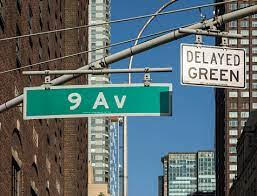
To friends, students, and colleagues,
After a bit of soul-searching, I have decided not to hold class today and yes, Tisha b’Av is on my mind. I had thought originally that it would be a good idea to do so, especially because Noah had summoned me to Camp Vistors Day and it would mean that we would miss too many days in a row. When events allow us to get out of the practice of gathering together, then it almost goes without saying that it is more difficult to get back into the swing again. I have a feeling that was a little of what the Sages (Hazal) of ancient times thought about when creating Yavna (the first gathering place after the destruction of the Temple), and while however aggrandizing that comment to be, I admit, I digress.
This evening officially begins Tisha b’ Av, as we all know as the commemoration of the Destruction of not just one, but both of the ancient Temples in Jerusalem and the Exile of the Jewish people from the Land of Judea, and perhaps the idea of all Exile writ large — and although truthful, that should be filed more under the heading of historiography than of history.
To be sure, we will reconvene this Sunday at 3:30 PM and pick up where we left off: reviewing what got us here, how that connects us to the documents we adhere to and live by (Biblical and otherwise), and the calendar that seems to refract everything into a world view that survives us to this day.
I have decided instead to attend the Synagogue this evening and listen to the Lamentations, also known as Eicha, and think through the idea that we have historically and traditionally blamed ourselves (not entirely, but significantly) for what happened in the revolts and the exiles which brought about this destruction of what we once knew as Jewish civilization.
To this day, yes, to this day, internally we are still struggling with external forces, both from distant lands and also significantly within Israel, to work out the future of a promise, or a covenant to allow the People of Israel to dwell in peace and among its own kind in the Land called Israel. While this evening I have chosen to listen to the chant of the Lamentations, I suspect that I will know or at least be mindful that the struggle is far from over, either from outsiders or from our own selves, in a Land called Holy,
I hope we will continue to share our reflections of this day as we pick up this coming Sunday. It is an awesome responsibility to look back and examine everything anew — especially in these times. I hope we can all be grateful that we are granted the opportunity to do so, these two thousand years later.
I hope to see everyone this Sunday . . . and for those fasting for this period of time, I wish you not an easy fast, but a meaningful fast.
R’ Seth
______
The First Temple was destroyed either on the 10th of Av (Jeremiah 52:12) or the 7th (2 Kings 25:8). The Second Temple, according to Josephus, was destroyed on the 10th. How did Rabbinic Jews come to commemorate the destruction of both Temples on the 9th of Av?
https://www.thetorah.com/article/why-did-vespasian-and-titus-destroy-jerusalem
Please have a look at an important article ^ that sees the Jewish Revolt of 67-70 CE from a Roman political viewpoint instead of the way the Jewish people have traditionally understood the Revolt and the Destruction of Jerusalem, from an internal Jewish perspective.
Historically and theologically Judaism would come to see the Destruction and our Exile of both the Great Revolt of 70 CE and the Bar Kochba Revolt of 132 CE as a result of our own internal failure(s) and as a lament. Interesting . . .
Less apparent, we have also understood the subsequent rise of Rabbinic Judaism (the current form of Judaism we live by) as a triumph. Both of these views are accurate — of course, the weight each one of these views brings to the table is a constant source of friction and consternation among the various variations of the Jewish people(s) along with our not-so-distant theological cousins of early Jewish-Christianity.
Here’s the truth: without these Destructions (what we should really refer to as ‘the Implosion’), we would have nothing of Judaism as we know it and certainly none of today’s spinoffs (both legitimate and illegitimate alike).
All of this is both factual and truthful.
